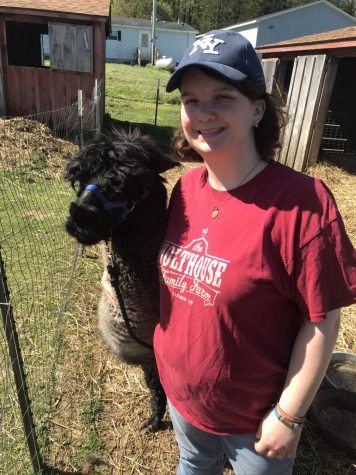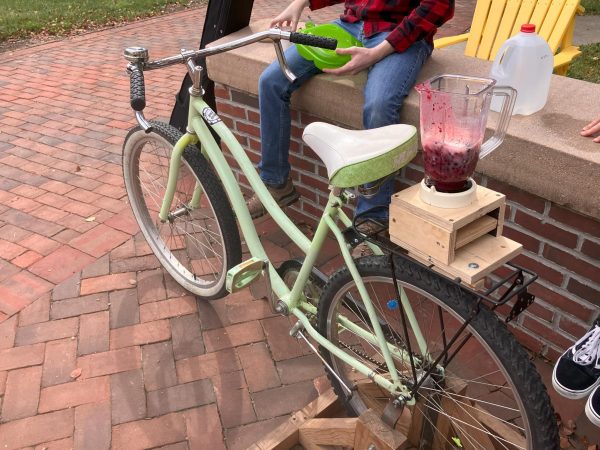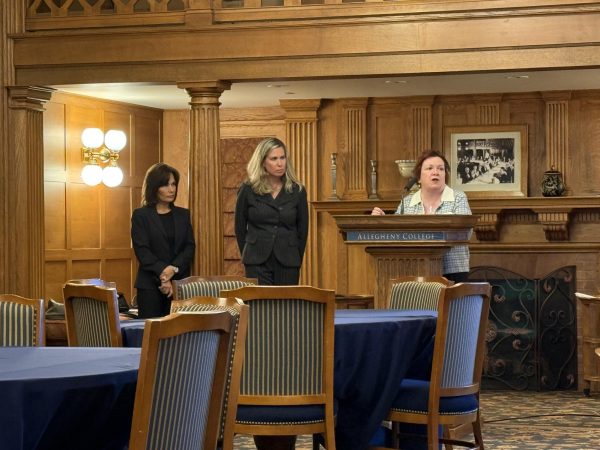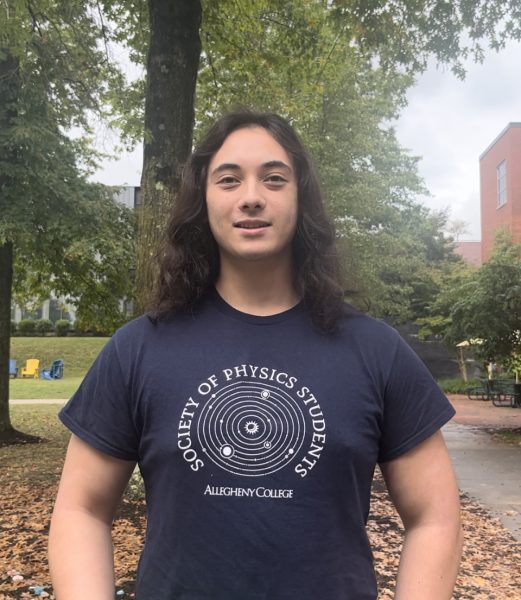24/7 Crisis Line Introduced for all Allegheny Students
The newest initiative on Allegheny College’s campus involving student mental health and overall wellness is the recently-introduced 24/7 Mental Health Crisis Line.
The crisis line was developed over the summer and officially launched in August to increase accessibility of counseling services and other faculty, including the Dean of Students Office, to students any time they need it. The crisis line is also available during breaks and holidays, along with any time the college is closed.
Director of the Counseling and Personal Development Center Trae Yeckley said that after discussion between the Dean of Students Office and the counseling center, along with “a few more (Allegheny) offices,” the idea for the 24/7 Crisis Line was born.
Previously, the crisis line was answered by counselors who were on call, causing students to have long wait times or, sometimes, fail to get through at all. The new crisis line functions to erase the wait time and increase overall accessibility.
“(We wanted) to find the best way that we could support our students, not only during (the counseling center’s) office hours, but after hours as well,” Yeckley said. “The decision was made that if we could provide some sort of crisis line, that students could utilize it during office hours like they were using the crisis line before, but making it (available) 24 hours.”
Associate Dean of Students for Wellness Education Gretchen Beck explained that Yeckley reports back to her about the crisis line, and that they worked together starting in the spring semester to add accessibility for students to the crisis line and the Counseling and Personal Development Center, but waited to introduce the crisis line until this semester.
“My role is really to support (Yeckley) and the counseling center staff,” Beck said. “I help them get access to any additional resources and support that they need so we can respond to students in the best way possible.”
Additionally, Beck said she is now in charge of the wellness committee, previously run by Allegheny Chaplain Jane Ellen Nickell. Beck added that the wellness committee is run by faculty and student members, and focuses on student self-care, especially during finals week. The updated crisis line will expand on these initiatives.
Yeckley explained that students could use the crisis line’s phone number for anything, including feeling stressed, overwhelmed or, at anytime, just feeling the need to reach out.
“The way we have it set up, we really want students to use (the crisis line) anytime they think they need to use it,” Yeckley said. “Anytime a student thinks they need to reach out to somebody, we wanted to make sure that we had a resource available.”
Yeckley described how the process would work when a student calls.
“So it’s pretty simple — you call the phone number, (which is) 814-332-2105,” Yeckley said. “The line is answered, ‘Allegheny College Crisis Line,’ or something along those lines. They’re going to ask for your name, (student) ID number and phone number in case you get disconnected. And then they’re going to just ask you some questions: ‘What’s going on? How can we help you? Is there anything specific that you need to talk about?”
Additionally, Yeckley said, depending on the students’ answers, more questions may be asked.
“(The follow-up questions are) just to make sure that the student is safe and that others are safe as well,” Yeckley said.
Yeckley and the counseling center worked together with Vice President of Student Life and Dean of Students April Thompson, who said that she hopes the new system will create less waiting time for students.
“I expect that our counselors will have more time to see our students one-on-one,” Thompson said. “Last year, some of our students needed to wait two to three weeks to see a counselor, so hopefully this will mean that students will be able to see a counselor much faster.”
Thompson said she also thought the improved crisis line would increase the time that counselors had to focus on other wellness activities and, as a result, create more initiatives in the future.
“With less time to focus on the late night calls, our counselors will be able to do more wellness activities, including in the residence halls,” Thompson said. “Several of our counselors are doing drop-in hours for students in the residence halls now. We just generally want them to be more available for the variety of mental health issues that we see on campus.”
Yeckley said the most common questions the counseling center has had about the crisis line so far is how to call and when.
“We’re trying to get the (crisis line) number out as much as possible,” Yeckley said. “We’re also trying to emphasize that it is a 24/7 hotline, and that it doesn’t matter if the college is closed, or on break — it really is a 365-day hotline.”
Additionally, Thomspon said she really hopes to hear a lot of feedback from students.
“I hope to hear feedback from both students who’ve used the service, how it went, what they thought,” Thompson said. “And (I would like to hear) also from students who’ve seen counselors, to see if the wait time actually is shorter.”
Along those lines, Yeckley added that the crisis line has been heavily supported by faculty and staff, along with the campus community.
“We hope that this is a resource that students will utilize,” Yeckley said.
Similarly, Beck said the Crisis Line is meant to be a resource for students and she hopes that students will take advantage of it.
“It really is a great resource (to have),” Beck said. “Not many college campuses have that.”

Sara Holthouse is a senior from Panama, NY. This is her third year/final semester on staff, where she has previously served as news editor for the past...





